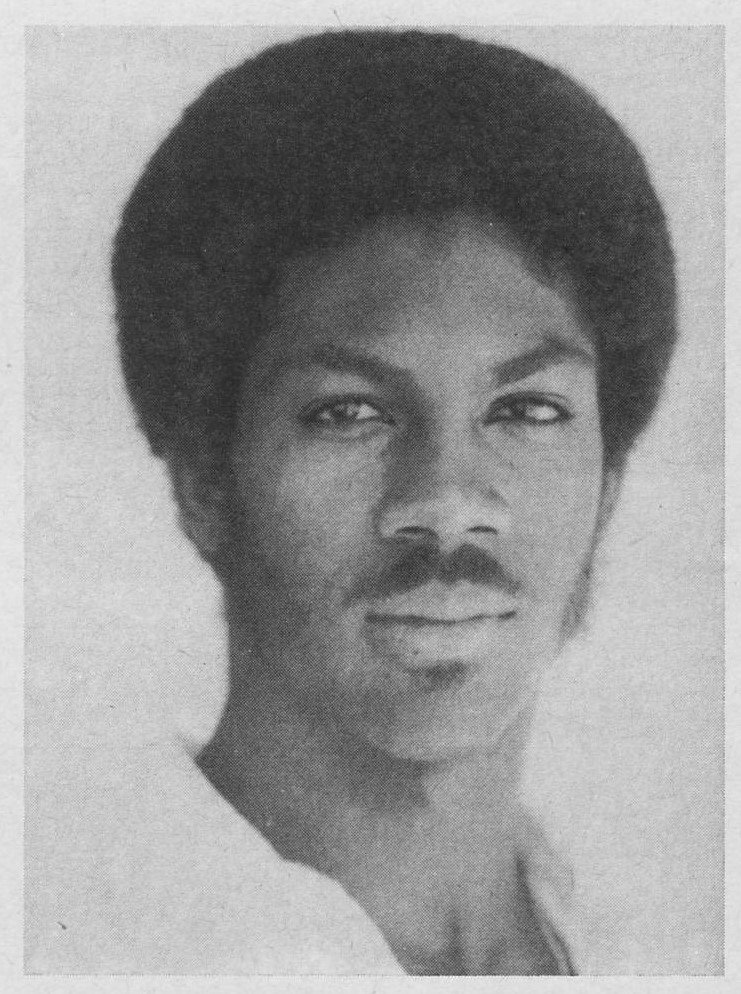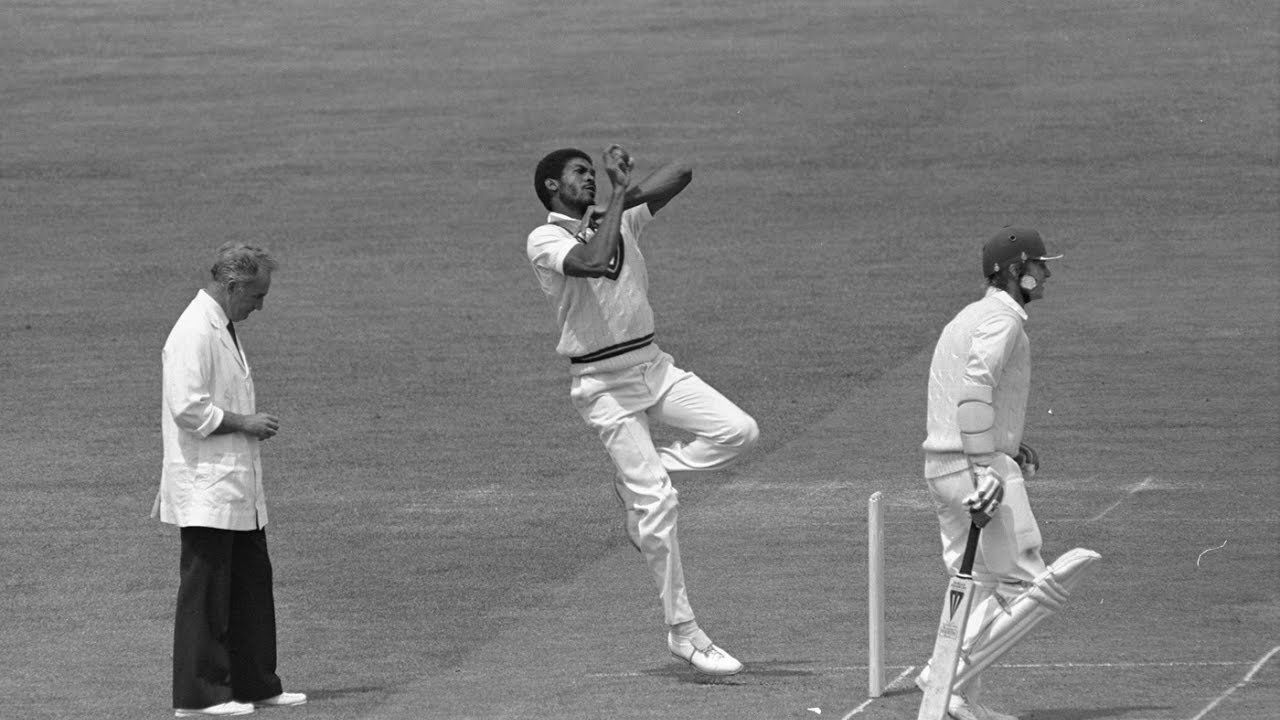Michael Holding paced out his menacing run. He was almost using the sight screen at the pavilion end as a catapulting starting block. The first ball snortingly tore a strip off the knuckle of Boycott’s left-hand batting glove and dropped just in front of the third slip as the batsman wrung his band in pain. The second was shorter and even more spiteful, and Geoff Boycott jackknifed his forehead out of the way with a millimeter between his life and a coroner’s verdict of misadventure due to the whiplash effect.
The next ball was of a fuller length but no less wicked, and it licked back cruelly to splatter the inside of Geoffrey’s unguarded left thigh. ‘lie infinitely courageous Englishman stuck to his middle-stump scratch-mark, and the fourth ball had him in all sorts of ungainly contortions as he endeavored to keep down the missile again with his already wounded left hand; the thing squirmed away to gully.

The fifth delivery again had you fearing for the stubbornly gallant knight’s life as it reared angrily at his throat like a buzzsaw, looking to at least peel his Adam’s apple. Still, Geoff Boycott stood his ground. As if the hateful half-dozen had been orchestrated into one gigantic, discordant crescendo, the sixth and last ball of the over was a snaking Yorker, which fiercely ripped Boycott’s off-stump out of the ground and had it spearing fully 20 yards as if, for a moment we thought, it would impale itself in the very heart of the wicketkeeper, Murray. It missed him by a whisker.
The vast throng was silent, stunned, for a split second. Boycott jerked around to watch the flight of the stump, and then, as the great crazed noise erupted all around his ears, his mouth gaped and he tottered in his crease as if he’d seen the very Devil himself. Then, agonized and tremulous, he walked away, tearing his batting gloves off with his nervously juddering teeth. By the time he got to the pavilion step, he was erect again—beaten this time, sure, but already determined on his counter.
Tom Graveney once said that Holding’s approach to the wicket is smooth and graceful and umpires have told me they cannot hear him running in, so light is he on his feet. ‘I have only listed players that I have either seen or have had first-hand information about, rather than digging too far back into the past.
Wes Hall was a player whose performances inspired me when I was a youngster just learning about the game. He had classical action and a sporting but competitive nature. His partnership with Charlie Griffith used to cause an explosion of interest and excitement in the West Indies when I was a schoolboy and I used to dream of one day bowling just like them in Test cricket. Uton Dowe is perhaps the least well known outside the West Indies but he was popular in Jamaica, where, though sometimes erratic, he could really whip the ball down.’
Read More: Jim Laker – My Best-ever Bowling Stint
